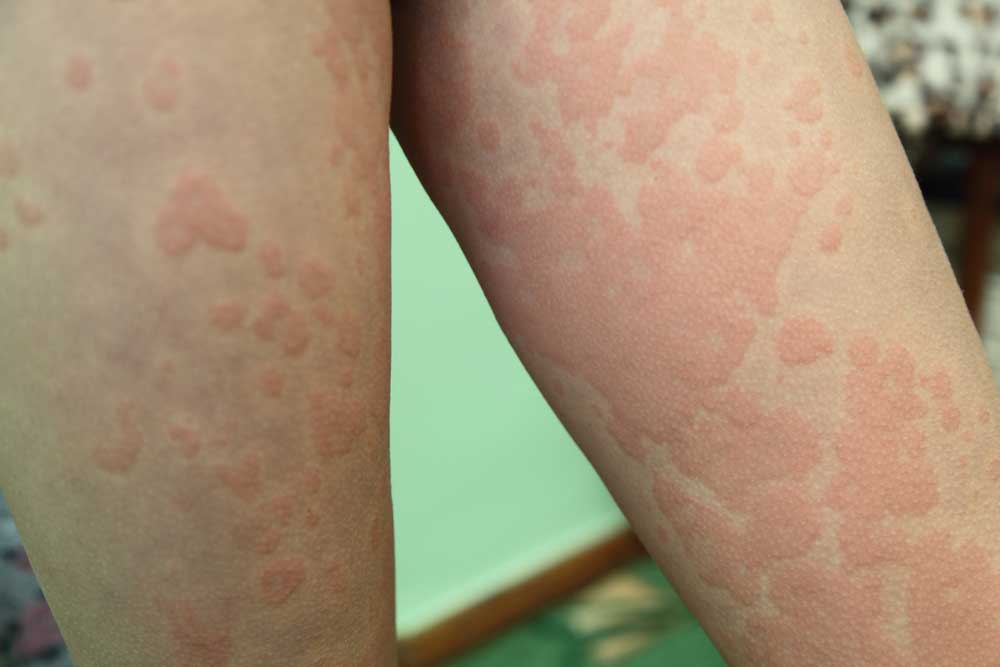Allergy Medicine, Testing and Injections
Immunotherapy, also known as “allergy shots” is a way of making the body less sensitive to specific substances known as allergens.
Allergic reactions to flying stinging insects -honeybees, hornets, wasps and yellow jackets – are relatively common. The severity of an insect sting reaction varies from person to person.
Allergic rhinitis, commonly known as a runny nose, or when due to pollen exposure, “Hay Fever” is the medical term describing irritation and inflammation of the nose.
A skin prick test, also called a puncture or scratch test, checks for immediate allergic reactions to as many as 50 different substances at once.
A drug allergy is the abnormal reaction of your immune system to a medication. A drug allergy occurs when your immune system mistakenly identifies a drug as a harmful substance, such as a virus or bacterium.
This infographic below will show you what types of fruits, vegetables, nuts and other foods are associated with which types of pollens and may help identify foods that trigger an allergic reaction.
Hives, the common term for urticaria, may appear as blotches or raised red bumps (wheals), caused by irritation in the upper layers of the skin.
The sinuses are hollow air pockets (cavities, spaces) in the bones of the face and head that probably exist to cushion the brain during trauma.
Hay fever (Allergic Rhinitis) is the most common of the allergic diseases and refers to seasonal nasal symptoms that are due to pollens.
If you have a respiratory mold allergy, your immune system overreacts when you breathe in mold spores. This reaction triggers a cascade of reactions that lead to allergy symptoms.
Although many people have bad reactions to certain foods, a true food allergy – a reaction triggered by the immune system – isn’t as common as you might think.
Dust mites are the most common cause of allergy from house dust. There may be as many as 19,000 dust mites in one gram of dust, but usually between 100 to 500 mites live in each gram.
Household pets are the most common source of allergic reactions to animals. 15-30% of people with allergies have an allergy to dogs, cats, or other animals.
Anaphylaxis is an acute and very severe allergic reaction. Minute amounts of allergens may cause a life-threatening anaphylactic reaction.














